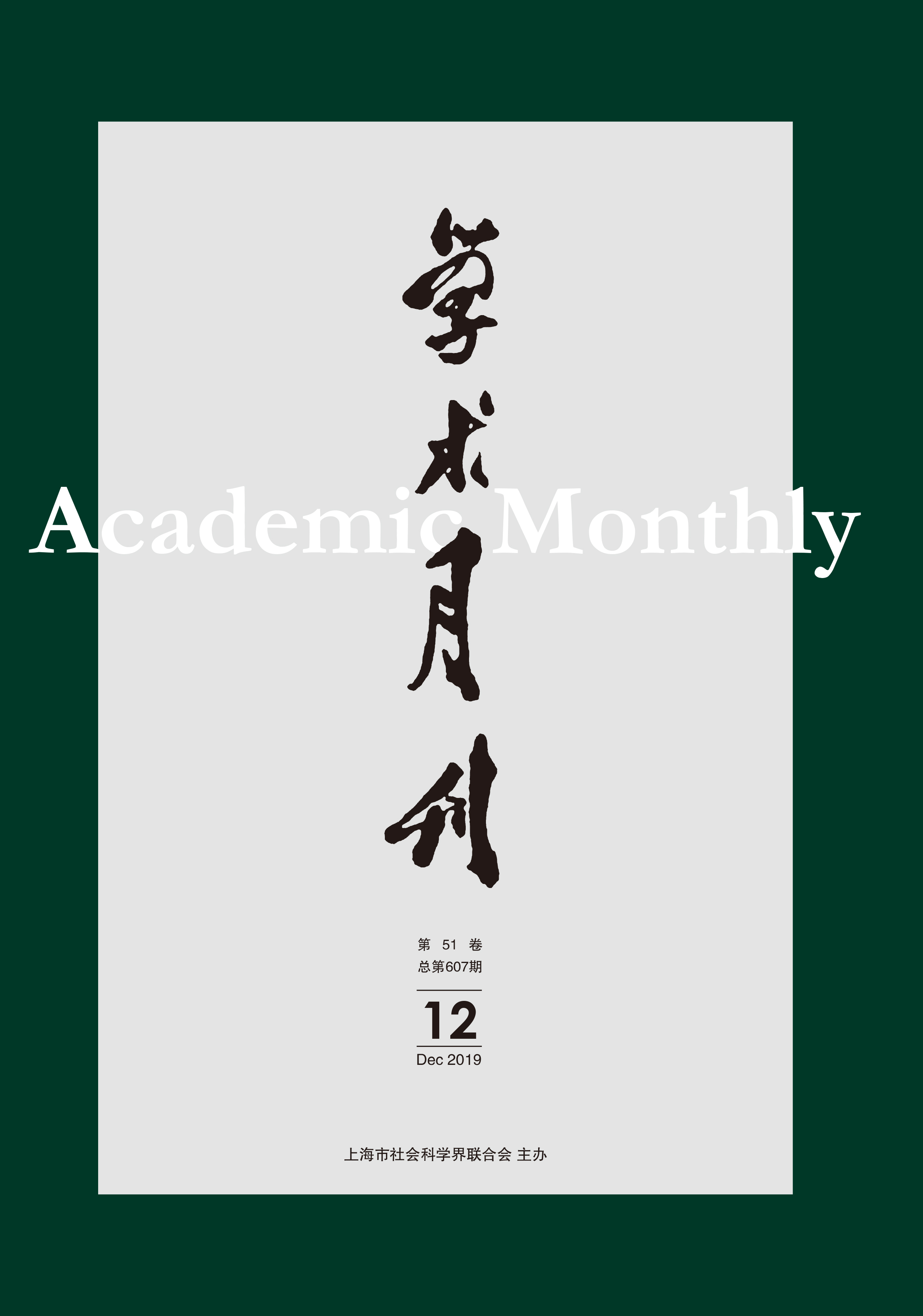Citation:
Lesong CHENG. To Understand Difference from Writing Mode[J]. Academic Monthly, 2019, 51(12): 24-32.

To Understand Difference from Writing Mode
-
Abstract
In what sense could one attribute the specialty of Chinese philosophy to the particularities of Chinese as a language? How should one clarify or elaborate the particularities of Chinese? We attempt to demonstrate, we could not agree with either the linguistic determinism in the comparative research with an intercultural context, or interpretation on the specialty of Chinese philosophy through the fragmental analysis. The comparative linguistic analysis framework applied in the intercultural philosophical comparation is not impeccable, for its theoretical source from the Western academia and not tolerant to the mode of philosophical construction. Writing manifests the semantic mode of Chinese characters and words on the one hand, provides the basis of the composition and readings of Chinese thoughts, on the other. The understanding of the characteristics of Chinese as a linguistic medium of philosophical reasoning should begin with the writing mode, which surly is not a fixed system of signs and grammatical rules, but an expressive and communicative process through the involvement of subjects. Writing, as a continuous rational practice, demonstrates the specialty of Chinese philosophy, which leads us to be aware that the comparative philosophical research of inter-lingual context should be delivered from the writing mode as process of thinking.
-

-
References
-
Access
-
-
[1]
HAN Shuifa
. . Academic Monthly,
2018, 50(7): 5-24.
-
[2]
Juyuan CHEN
. The Writing of Confucian Classics in Eight-legged Essay in Qing Dynasty. Academic Monthly,
2023, 55(3): 22-34.
-
[3]
SUN Zhouxing
. . Academic Monthly,
2018, 50(7): 25-31.
-
[4]
CHENG Lesong
. . Academic Monthly,
2018, 50(7): 32-38.
-
[5]
Yingjin XU
. A Dialogue between Sosa’s Virtue Epistemology and a Confucian Theory of the Rectification of Names. Academic Monthly,
2019, 51(12): 13-23.
-
[6]
Yu GAO
. On Literary Language and the Construction ofContemparary Chinese. Academic Monthly,
2022, 54(5): 141-150.
-
[7]
Yingjin XU
. How Could Contemporary Western Epistemology be Integrated into a Chinese-based Framework. Academic Monthly,
2021, 53(11): 16-29.
-
[8]
. . Academic Monthly,
2016, 48(11): 164-179.
-
[9]
,
. . Academic Monthly,
2019, 51(8): 179-184.
-
[10]
. . Academic Monthly,
2016, 48(02): 56-65.
-
[11]
Zhichang PAN
. The Aesthetic Discourse of “Egoistic Thrusters”. Academic Monthly,
2021, 53(6): 195-204.
-
[12]
ZHANG Wei, LYU Chenggang
. Visual Rhetoric and “Liberation” Writing in ChinChaChi Pictorial. Academic Monthly,
2023, 55(7): 152-162.
-
[13]
. . Academic Monthly,
2016, 48(09): 164-168.
-
[14]
Nini KONG
. Politics of Powerful Ministers and the Political Competition in Imperial Edict Writing in the Southern Song Dynasty. Academic Monthly,
2022, 54(8): 163-174.
-
[15]
CHU Xiaobai
. Writing Revenge with the Body —— On the Rewriting of “The Crucifixion” in Lu Xun‘s Revenge (II). Academic Monthly,
2023, 55(9): 152-160.
-
[16]
. . Academic Monthly,
2017, 49(02): 19-24.
-
[17]
. . Academic Monthly,
2018, 50(01): 175-184.
-
[18]
Shu WANG
, Lijia SHEN
. Intergenerational Characteristics and Spiritual Trajectory of Youth Image Writing in the New Century. Academic Monthly,
2021, 53(11): 177-185.
-
[19]
Xin YU
. Knowledge, Belief and Political Order: The Historical Writing of Aurora in the Medieval World. Academic Monthly,
2022, 54(12): 176-190.
-
[20]
ZHANG Zhenguo
. A Study on Daofu Asking for Instructions and Daily Government Affairs in the Qing Dynasty— Also on Instructions Writing and Its Characteristics. Academic Monthly,
2023, 55(5): 202-216.
-
-



 沪公网安备 31010102003103号
沪公网安备 31010102003103号 DownLoad:
DownLoad: